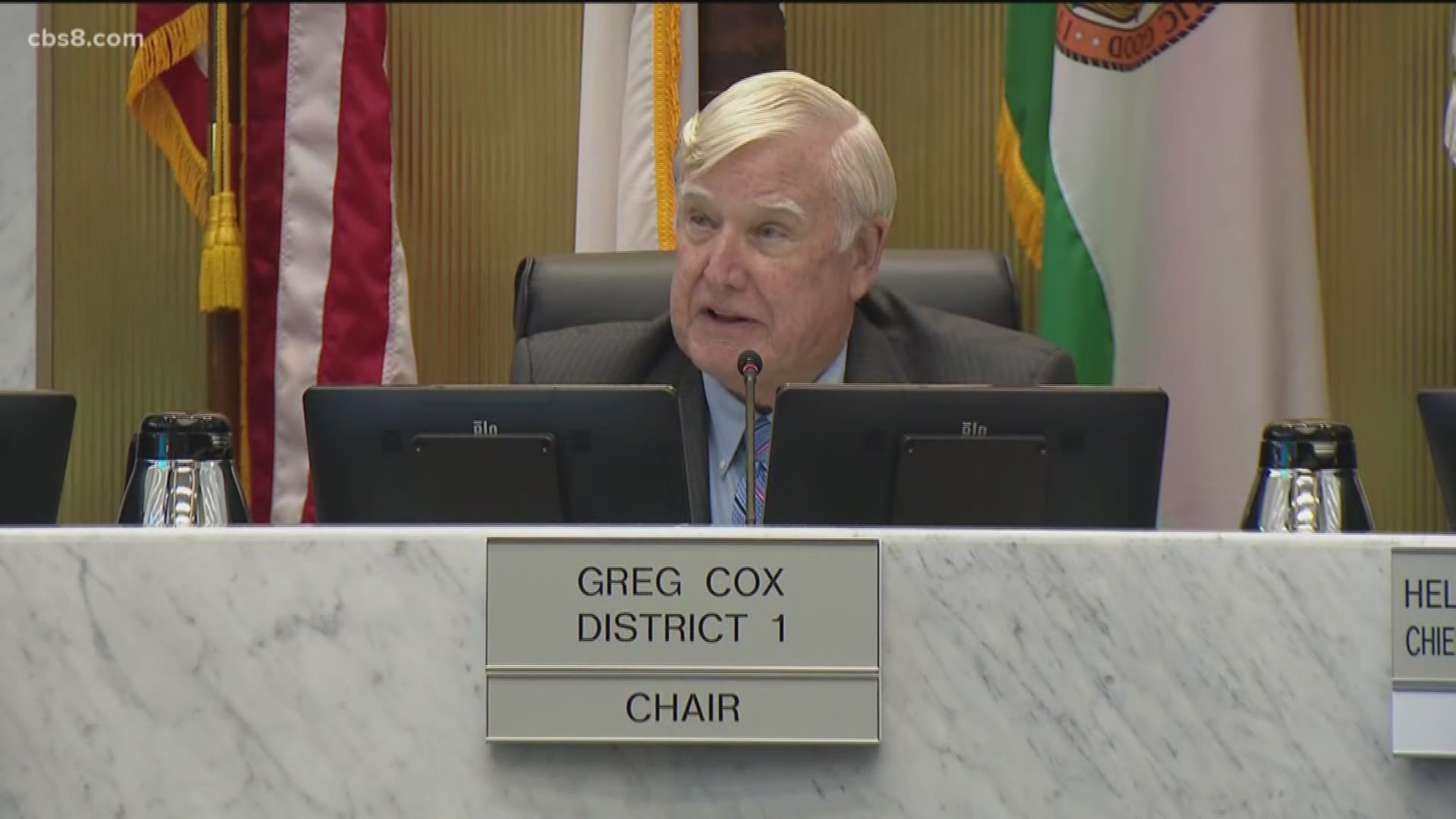SAN DIEGO COUNTY, Calif. — The San Diego County Board of Supervisors Tuesday unanimously voted to continue the recently declared local health emergency in response to the deadly coronavirus, and to form a subcommittee to handle related challenges.
County public health officials updated the board on their efforts to test everyone who may have been exposed to the virus and educate the public on how to stop the spread.
Helen Robbins-Meyer, county chief administrative officer, said while it's clear that COVID-19 cases have increased, the county "is working around the clock to meet the challenges associated with this."
Supervisors unanimously voted to approve the subcommittee. Supervisors Greg Cox and Nathan Fletcher will lead the subcommittee .
"This virus poses a new and dangerous challenge to our region and we need to take different and more enhanced approaches for dealing with it," said Cox, board chairman. "I want to assure the public that we are doing all that we can to prevent the spread of this illness."
Supervisor Dianne Jacob suggested that Cox's experience with the National Association of Counties made him good choice, while Fletcher's time in state Legislature was a plus.
Supervisors are also considering asking retired county employees to step in if need be.
You can watch the full press conference here:
Along with forming a subcommittee and declaring a local emergency last month, the county has also taken the following steps:
-- Establishing an incident command incident and activating the Emergency Operations Center to "Level 3" for a minor or limited emergency;
-- Placing 86 hand-washing stations throughout the county, and offering help to 18 cities in the region;
-- Creating a website to provide information for the public and offer resources, including alert posters in multiple languages;
-- Extending public outreach through social media and planned public service announcements on local radio stations, and;
-- Providing outreach to the homeless community, with help from other service providers and the Regional Task Force on the homeless, including the distribution of personal hygiene kits.
“We are exploring the potential of having regional, drive-thru testing facilities," said Dr. Nick Yphantides.
County Health Officer Dr. Wilma Wooten told the board that even with an increasing number of cases globally -- with travel being a key factor in the spread -- the general public's health risk is considered to be low.
Wooten stressed that it was important for residents to take measures to prevent the spread of disease, including washing hands for at least 20 seconds or using at least 60% alcohol sanitizer, avoid touching one's face, keeping a safe physical distance from others and frequently cleaning touched surfaces, such as phones or computer keyboards.
Wooten is recommending everyone stock up on a two-week supply of everything they need, including toilet paper, pet food, etc.
In a separate news conference at the White House on Tuesday, the coronavirus task force said that the risk remains low nationwide, but the risk is higher in California, Florida, Washington, and New York. The CDC is developing plans for those specific states.

